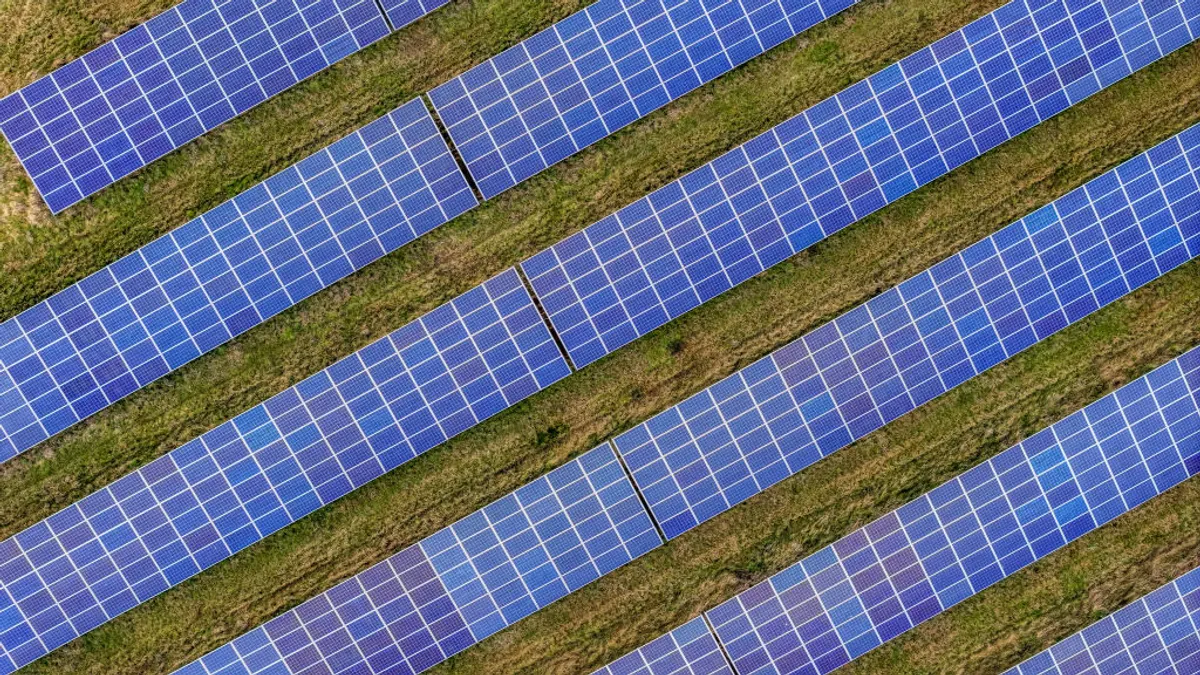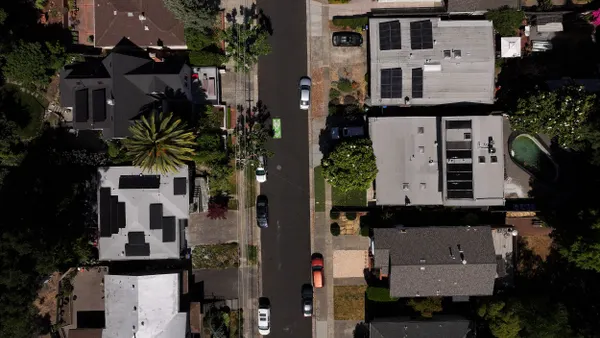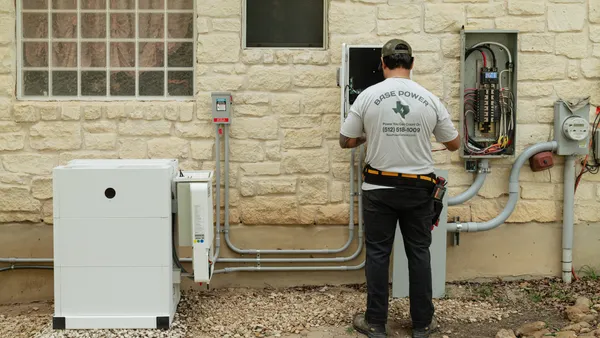Dive Brief:
-
The Trump Administration on Tuesday finalized its fuel efficiency standards in a move that electric vehicle advocates worry could harm the domestic EV market.
-
The final rule, issued by the Environmental Protection Agency (EPA) and National Highway Traffic Safety Administration (NHTSA), weakens Obama-era fuel efficiency guidelines, requiring corporate average fuel economy (CAFE) and carbon emissions standards to increase 1.5% from 2021 to 2026, rather than 5% annually.
- "We believe that 1.5% reflects the best balance among many different competing factors," NHTSA Acting Administrator James Owens told reporters. "This is a rule that, from NHTSA's perspective, requires us to balance economic considerations, technological considerations, the nation's need to conserve energy and other government standards" including safety and the environment.
Dive Insight:
Trump Administration officials say the Safer Affordable Fuel-Efficient (SAFE) rules are intended to make vehicles safer and more affordable while loosening annual efficiency and emissions standards automakers need to meet, on average.
The NHTSA and EPA estimate the rule will reduce the sticker price of new cars by about $1,000, while stressing consumers can still, by choice, buy more efficient vehicles.
"If a consumer wishes to purchase a hybrid or an electric vehicle or another vehicle that's highly fuel efficient, they will still be able to do so," said Owen. "What this rule does is recognize that consumers have different preferences."
Market advocates praised the new rule as a win for consumers and automakers.
"President Trump inherited a CAFE mandate from his predecessor that was impossible to achieve without dramatically altering the automobile market or making the cost of vehicles out of reach for most American families," Thomas Pyle, president of the American Energy Alliance said in a statement.
But consumer, finance, efficiency and environmental groups argue the rules could unduly harm the U.S. EV market and its global competitiveness as a manufacturer, and cost consumers $300 billion in net losses.
"Changing CAFE rules now just as other global markets are seeking more energy efficient vehicles will put this important American economic sector at a distinct global disadvantage," Ken Locklin, director and senior policy analyst at Impax Asset Management told reporters this week.
"The U.S. is already starting to lose the race with EV technology, and deployment and the new products and services that go along with any new technology," Katherine Stainken, policy director at Plug In America told Utility Dive. "If the U.S. doesn't continue to enact supportive policies, we're going to lose that race, and then all of that investment that goes with it."
EPA and NHTSA say the rules will not inhibit the EV market, but rather open it up to more competition from other low-emissions vehicles.
"As EPA worked on this rule with NHTSA, it became apparent that the singular focus on EVs could not address the nation's need for a diversified fleet of cleaner, lower emitting fueled vehicles," EPA spokesperson Corry Schiermeyer told Utility Dive in an email.
"The new standards in SAFE will help begin the process opening the market place to NGV (including renewable natural gas) technologies. In taking that step, the SAFE rule is not hindering the EV industry in any way," she said.
Tuesday's rule is phase two of the SAFE rules. Phase one, issued last fall, revokes states' authority to issue their own fuel standards. The rule specifically targeted California's fuel standards, which EV groups consider to be the biggest driver of EV deployment. Other states including Colorado, Washington, New Mexico and Minnesota follow California's standard.
In September, 23 states including California sued the Trump Administration for revoking the waiver.
Automakers were split in their support. Ford, Honda, BMW and Volkswagen struck a deal with California last summer that led them to support states' rights to set their own standards. But GM, Toyota, and Fiat Chrysler sided with the Trump Administration's push for a single national standard.
The lawsuit is currently pending, and advocates expect litigation on the second rule as well.
"We hope that we will not see [additional] litigation, but of course, we are prepared to defend the rule if such unfortunate eventualities should arise," said Owens.
Correction: An earlier version of this story misquoted NHTSA Acting Administrator James Owens. He said the rules balance considerations from an NHTSA perspective.













